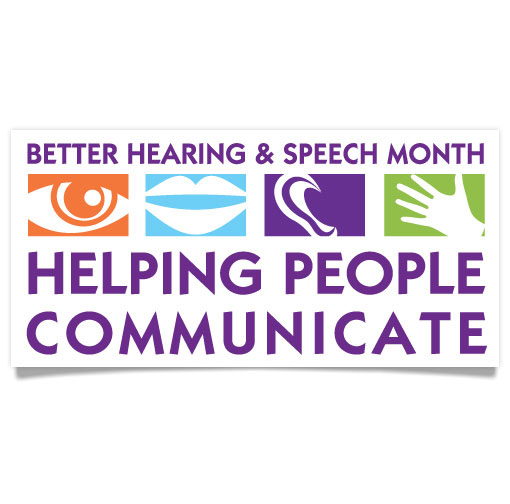
Celebrating Better Speech & Hearing Month - Part I
-
“The human voice is the organ of the soul” -Henry Wadsworth Longfellow

Your voice is one of your most intimate instruments of expression. With it, you convey how you want to be perceived and understood. Are you brave or shy? Intimidating or approachable? Strict or easygoing? Your voice conveys not only who you are, but also how you are feeling. Are you nervous, happy, scared, angry or indifferent?
Your speech mechanism is what shapes your voice into words. The manner of your speech (for example, do you speak slowly? Quickly? Precisely?) also contributes to the formation of “who you are” to your listener. Your voice and speech give a powerful subtext to your words and to the communication interaction.
If your voice or speech mechanism becomes damaged or abnormal, the impact of that change can extend beyond simply having difficulties being understood by others. It can change how you perceive yourself – and how you are perceived by those you interact with. In my experience as a speech pathologist working with people who have problems with their voice or speech, it is the latter challenge that is often most painful. Being misunderstood or misheard is frustrating, but being misperceived or underestimated can be life changing.
Furthermore, if you depend on your voice for your livelihood, as singers and actors do, a voice disorder can influence your sense of self deeply as well as threaten your livelihood. One of my patients who was a professional singer encapsulated this best when she said to me, “Who am I if I am not singing?”
Interventions for voice and speech problems usually involve voice or speech therapy, and sometimes surgical or medical interventions as well. That is why at Fox Chase, together with the Temple Head and Neck Institute, a laryngologist (voice doctor) and a speech pathologist evaluate patients with voice disorders together. This team approach to voice care allows for a comprehensive treatment plan that is based on the individual patient and includes both therapeutic and medical perspectives. A multispecialty approach by experienced providers is critical for addressing problems with such an important function (voice production) and complex organ (the larynx or voice box).
Many, if not most, voice or speech problems resolve following intervention. For some, however, dysfunction persists. Sometimes this is the result of chronic or life-threatening conditions, and these people have to learn to live with and even accept the way they sound. As listeners, we can help them do this by listening carefully and patiently, kindly requesting clarification when we don’t understand (avoid pretending you understand when you don’t), and by remembering that their speech does not reflect who they are but rather what they have survived.
